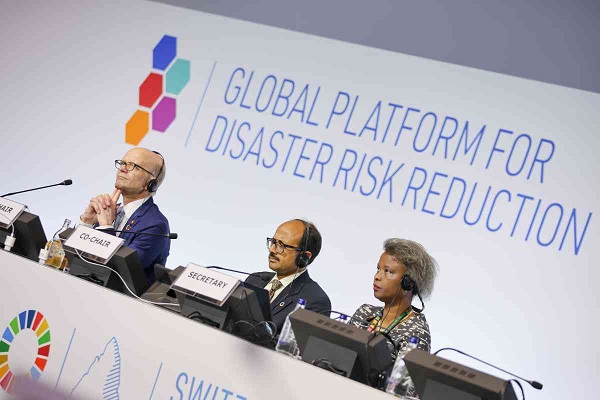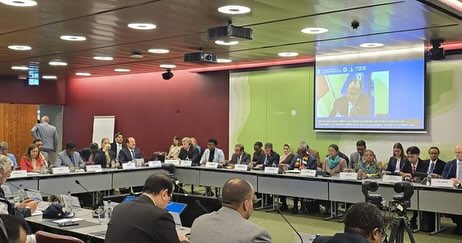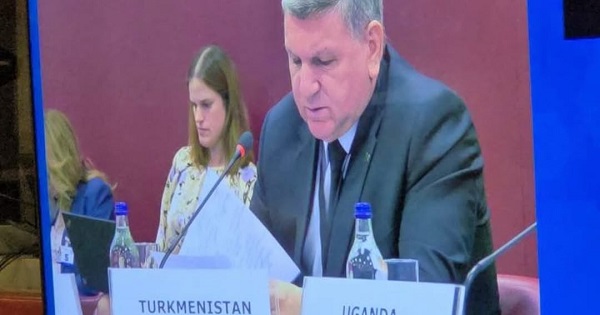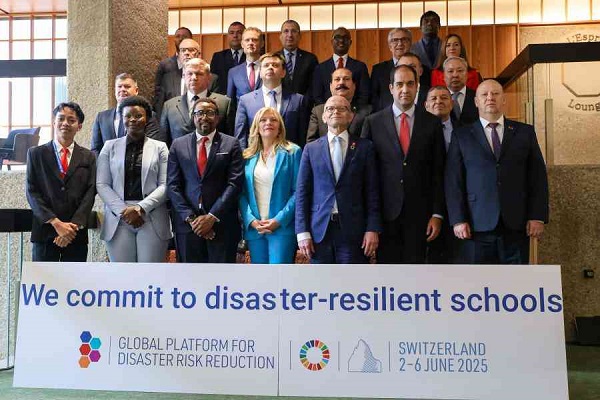From 2 to 6 June 2025, the Global Platform for Disaster Risk Reduction (GP2025) was held in Geneva, organized by the United Nations Office for Disaster Risk Reduction (UNDRR).
The UN General Assembly recognizes the Global Platform for Disaster Risk Reduction as a critical mechanism to review progress on the implementation of the Sendai Framework for Disaster Risk Reduction. At the Platform, governments, the UN system and all stakeholders get together to identify ways to further accelerate the implementation of the Sendai Framework. Since 2007, eight sessions of the Global Platforms have taken place. The outcomes are recognized by the General Assembly and the Economic and Social Council as a contribution to the deliberations of the High-Level Political Forum on Sustainable Development (HLPF) and thus, contributing to risk-informed implementation and monitoring of the 2030 Agenda for Sustainable Development.
GP2025 was the first since the Midterm Review of the Implementation of the Sendai Framework for Disaster Risk Reduction 2015-2030. Since 2015, countries have made significant progress, but challenges remain. Recognising this, the Global Platform was organised under the theme of “Every Day Counts, Act for Resilience Today.”
The 8th Global Platform’s outcome document is titled the “Geneva Call for Disaster Risk Reduction.” It calls for better data to understand risk, using technology to leapfrog progress, promoting integrated risk governance and cooperation, investing in prevention, scaling-up early warning systems.
Turkmenistan’s delegation was led by Dowran Durdyev, Deputy Minister of Defense of Turkmenistan, Head of the Main Directorate for Civil Defense and Rescue Operations.
On 5 June, during the Ministerial Roundtable: Safe Schools Now: Protecting Every Child from Disaster and Climate Risk, Turkmenistan emphasized the need to protect people and infrastructure from climate and natural hazards, strengthen civil defense systems, enhance national resilience, and deepen international cooperation.
“The issue of climate change has become an unprecedented challenge to the sustainable development of humanity. We are witnessing that global climate change is leading to an increase in natural disasters, the destruction of ecosystems, and water resource-related problems, all of which undermine food and environmental security worldwide.
Understanding the risks of disasters—which include vulnerability, capacity, exposure of people and property, the characteristics of threats, and the environment—Turkmenistan pays great attention to preparing the population for emergencies, raising awareness among government officials, civil society organizations, residents, volunteers, and the private sector,” stated the Turkmen delegation.
As emphasized, Turkmenistan has adopted joint action plans at the national, regional, and local levels aimed at preventing the emergence of risks, reducing existing risks, and strengthening resilience in economic and social terms.
Based on the collection, systematization, and analysis of data, these plans are regularly updated. They also include information on disaster risk in specific areas, including hazard zone maps.
In its statement, the delegation also highlighted the country’s fulfillment of its obligations under international legal frameworks. For instance, Turkmenistan has adopted a State Program for the Implementation of the Main Directions of State Policy in the Field of Civil Defense until 2030, which takes into account the priority areas of the Sendai Framework for Disaster Risk Reduction.
The session included 41 national delegations (Malaysia, UAE, Italy, Korea, Cuba, etc.) and global institutions like the European Commission, UNICEF, ADB, and others. ///nCa, 11 June 2025 (photo credit – Embassy of Turkmenistan to Switzerland, IISD/ENB)



